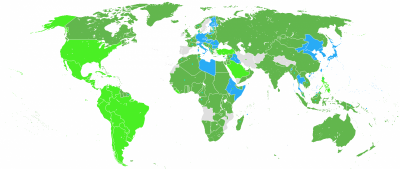Operation Husky was a major campaign of World War II in which the Allies invaded the island of Sicily and took it from the Axis powers (Fascist Italy and Nazi Germany). It began with a large amphibious and airborne operation, followed by a six-week land campaign, and initiated the Italian Campaign.
To divert some of the Axis forces to other areas, the Allies engaged in several deception operations, the most famous and successful of which was Operation Mincemeat. Husky began on the night of 910 July 1943, and ended on 17 August. Strategically, Husky achieved the goals set out for it by Allied planners; the Allies drove Axis air, land and naval forces from the island and the Mediterranean sea lanes were opened for Allied merchant ships for the first time since 1941. These events led to the Italian leader, Benito Mussolini, being toppled from power in Italy and led the way for the Allied invasion of Italy. The German leader, Adolf Hitler, "canceled a major offensive at Kursk after only a week, in part to divert forces to Italy," resulting in a reduction of German strength on the Eastern Front. The collapse of Italy necessitated German troops replacing the Italians in Italy and to a lesser extent the Balkans, resulting in one fifth of the entire German army being diverted from the east to southern Europe, a proportion that would remain until near the end of the war.
The Allies, later known formally as the United Nations, were an international military coalition formed during the Second World War (1939–1945) to oppose the Axis powers, led by Nazi Germany, Imperial Japan, and Fascist Italy. Its principal members by 1941 were the United Kingdom, United States, Soviet Union, and China.
Membership in the Allies varied during the course of the war. When the conflict broke out on 1 September 1939, the Allied coalition consisted of the United Kingdom, France, and Poland, as well as their respective dependencies, such as British India. They were soon joined by the independent dominions of the British Commonwealth: Canada, Australia, New Zealand and South Africa. Consequently, the initial alliance largely resembled that of the First World War.
As Axis forces began invading northern Europe and the Balkans, the Allies added the Netherlands, Belgium, Norway, Greece, and Yugoslavia. The Soviet Union, which initially had a nonaggression pact with Germany and participated in its invasion of Poland, joined the Allies in June 1941 after Operation Barbarossa. The United States, while providing some materiel support to European Allies since September 1940, remained formally neutral until the Japanese bombing of Pearl Harbor in December 1941, after which it declared war and officially joined the Allies. China had already been at war with Japan since 1937, but formally joined the Allies in December 1941.
The Allies were led by the so-called "Big Three"—the United Kingdom, the Soviet Union, and the United States—which were the principal contributors of manpower, resources, and strategy, each playing a key role in achieving victory. A series of conferences between Allied leaders, diplomats, and military officials gradually shaped the makeup of the alliance, the direction of the war, and ultimately the postwar international order. Relations between the United Kingdom and the United States were especially close, with their bilateral Atlantic Charter forming the groundwork of the alliance.
The Allies became a formalized group upon the Declaration by United Nations on 1 January 1942, which was signed by 26 nations around the world; these ranged from small nations far removed from the war, to governments in exile from the Axis occupation. The Declaration officially recognized the Big Three and China as the "Four Powers", acknowledging their central role in prosecuting the war; they were also referred to as the "trusteeship of the powerful", and later as the "Four Policemen" of the United Nations. Many more countries joined through to the final days of the war, including colonies and former Axis nations.
After the war ended, the Allies, and the Declaration that bound them, would become the basis of the modern United Nations; one enduring legacy of the alliance is the permanent membership of the U.N. Security Council, which is made up exclusively of the principal Allied powers that won the war.

1943Jul, 5
World War II: An Allied invasion fleet sails for Sicily (Operation Husky, July 10, 1943).
Choose Another Date
Events on 1943
- 11Feb
Dwight D. Eisenhower
World War II: General Dwight D. Eisenhower is selected to command the allied armies in Europe. - 30May
Auschwitz concentration camp
The Holocaust: Josef Mengele becomes chief medical officer of the Zigeunerfamilienlager (Romani family camp) at Auschwitz concentration camp. - 19Jun
Pittsburgh Steelers
The Philadelphia Eagles and Pittsburgh Steelers in the NFL merge for one season due to player shortages caused by World War II. - 6Nov
Kiev
World War II: The Soviet Red Army recaptures Kiev. Before withdrawing, the Germans destroy most of the city's ancient buildings. - 4Dec
Josip Broz Tito
World War II: In Yugoslavia, resistance leader Marshal Josip Broz Tito proclaims a provisional democratic Yugoslav government in-exile.

 English
English  español
español  français
français  português
português  русский
русский  العربية
العربية  简体中文
简体中文 